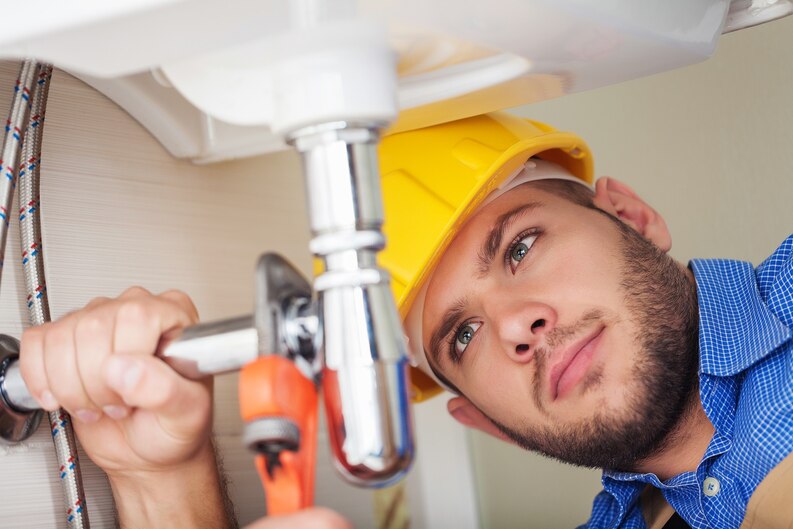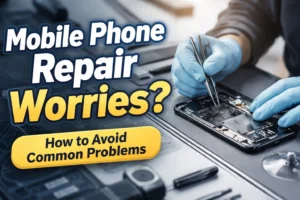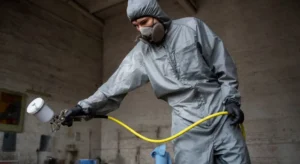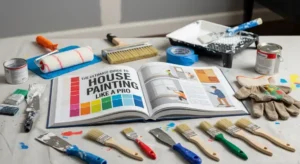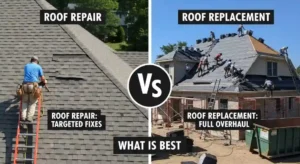Whenever we hear about plumber we usually think about someone who can fix pipes. But it’s a skilled trade that requires technical knowledge and compliance with state law and regulations. If you want to consider plumbring as a career then understanding about licence requirements is compulsory for you.
Every state has requirements to issue a plumber licence. In this blog we will discuss the legacy of 50 states. Let’s get started
Why Are Plumber Licenses Important?
Plumber licence verifies that you are professional in your field. This shows that you have knowledge and skills for various tasks with proper sanitation. These tasks may include,
- Installing Plumbing Systems
- Repairing and Replacing Components
- Maintenance Work
- Handling Advanced Plumbing Systems
- Emergency Services
- Compliance and Permits
Licenced plumbers follow the regulation which reduces the risk of any illegal action.
What Happens If You Operate a Plumbing Business Without a License?
Plaumbar law varies state to state. Some countries allow them to do minor tasks without any licence while in some countries plumbers are strictly prohibited to do any work without licence. If they do, they may face some penalties or fines.
For instance in Maryland, plumbers face severe consequences if they work without licence. They may have to pay 100$ per day imprisonment for up to six months. In some cases the fine may reach 5000$ on per violation.
General Licensing Categories
On the basis of standard of licence, Plumber licence has the three primary categories.
1. Apprentice Plumber
Entry level or beginners work under the supervision of experienced professionals who already have a licence. There you do not need a typical licence but it’s necessary to register yourself with the state or local authority.
2. Journeyman Plumber
After completing the apprenticeship you have to give an exam. If plumpers pass this exam they can work independently on residential or commercial projects.
3. Master Plumber
This is the highest level which one can achieve after extensive experience and passing many additional exams. Master plumbers are able to design bomber systems and supervise other plumbers.
Plumber License Requirement Across Different States
Plumber licence issue in each state after fulfilling some specific benchmark or criteria.
1. Alabama
According to Alabama laws, to work at any level from basic to master level it’s compulsory for a plumber to possess the licence which is issued by state. And you have to work for a specific amount of hours to obtain the licence. And to get a licence you have to give and pass an exam to prove that you understand the state’s law and regulations.
2. Alaska
Journeyman and master plumbing licenses are available in Alaska. Candidates must finish an apprenticeship program and fulfill certain work experience criteria in order to be eligible for these licenses. While master plumbers must exhibit further expertise and business knowledge, journeymen must pass a state exam. The Alaska Department of Labor and Workforce Development grants licenses.
3. Arizona
In Arizona, plumbing licenses are required for contractors and journeymen. The Arizona Registrar of Contractors oversees licensing. To become licensed, applicants must complete an apprenticeship program, gain work experience, and pass a state exam. Additionally, plumbers must ensure they stay updated with local codes and regulations to maintain their licenses.
4. Arkansas
Arkansas requires plumbers to hold a state license for work at the journeyman and master levels. Applicants need to complete an apprenticeship program, gain relevant work experience, and pass a licensing exam to prove their proficiency. The Arkansas Department of Labor is responsible for issuing and regulating plumbing licenses.
5. California
California’s plumbing licensing is governed by the Contractors State License Board (CSLB). To work as a plumber, individuals must pass a licensing exam after gaining experience through an apprenticeship program. California issues licenses at the journeyman, contractor, and master levels. Additionally, plumbers must maintain continuing education to comply with state regulations.
6. Colorado
In Colorado, plumbers must be licensed at the journeyman or master level. The state’s Division of Professions and Occupations oversees the licensing process. Plumbers must complete an apprenticeship program, gain work experience, and pass a state exam. Colorado also requires continuing education to ensure plumbers stay updated on code changes.
7. Connecticut
Plumbers in Connecticut are required to obtain a state license, which involves completing an apprenticeship program, acquiring work experience, and passing a licensing exam. Licenses are issued for journeyman, master, and contractor levels. The Department of Consumer Protection regulates the licensing process, ensuring compliance with the state’s plumbing codes.
8. Delaware
Delaware offers plumbing licenses for journeyman and master plumbers. To qualify, individuals must complete an apprenticeship program, gain practical experience, and pass a licensing exam. The Delaware Division of Professional Regulation handles the issuance of plumbing licenses and ensures compliance with state regulations and codes.
9. Florida
In Florida, plumbing licenses are issued for journeymen, master plumbers, and contractors. Applicants must complete an apprenticeship program and gain work experience before taking the state exam. The Florida Department of Business and Professional Regulation oversees the licensing process. Continuing education is also required to maintain the license.
10. Georgia
Georgia issues plumbing licenses at the journeyman and master levels. To become licensed, individuals must complete an apprenticeship program, gain practical experience, and pass an exam. The Georgia State Construction Industry Licensing Board regulates plumbing licenses and enforces state plumbing codes and regulations.
11. Hawaii
Hawaii requires plumbers to obtain a state license to work as journeymen or masters. Applicants must complete an approved apprenticeship program and gain hands-on experience before taking the licensing exam. The Hawaii Department of Commerce and Consumer Affairs oversees the licensing process. Continuing education is required to stay updated with plumbing codes and regulations.
12. Idaho
In Idaho, plumbers must be licensed as journeymen or contractors. To qualify, applicants must complete an apprenticeship program and gain practical experience. A state exam is required to test knowledge of plumbing systems, codes, and regulations. The Idaho Division of Building Safety issues and regulates plumbing licenses within the state.
13. Illinois
Illinois requires plumbing licenses at the apprentice, journeyman, and master levels. To become licensed, individuals must complete an apprenticeship program, pass an exam, and meet state-specific qualifications. The Illinois Department of Public Health oversees the licensing process, ensuring compliance with the state’s plumbing codes and regulations.
14. Indiana
In Indiana, plumbers must be licensed as journeymen or contractors. Applicants must complete an apprenticeship program, acquire work experience, and pass a state exam. The Indiana Professional Licensing Agency manages the licensing process. Additionally, plumbers must adhere to local codes and complete continuing education to maintain their license.
15. Iowa
Iowa requires plumbers to hold a state license to work at the journeyman or master levels. Plumbers must complete an approved apprenticeship program, gain relevant work experience, and pass a licensing exam. The Iowa Plumbing and Mechanical Systems Board oversees the licensing and ensures compliance with the state’s plumbing codes and regulations.
16. Kansas
Kansas issues plumbing licenses for journeyman and master plumbers. Applicants must complete an apprenticeship program, gain practical experience, and pass a licensing exam. The Kansas Board of Technical Professions handles the licensing process. Continuing education is required to ensure plumbers remain informed about code changes and industry standards.
17. Kentucky
Kentucky requires plumbers to be licensed at the journeyman and master levels. To become licensed, applicants must complete an apprenticeship program, acquire work experience, and pass a state exam. The Kentucky Department of Housing, Buildings, and Construction manages the licensing process and ensures that plumbing professionals comply with state codes and regulations.
18. Louisiana
In Louisiana, plumbing licenses are required for journeymen, master plumbers, and contractors. To qualify, individuals must complete an apprenticeship program and pass an exam. The Louisiana State Licensing Board for Contractors regulates the licensing process and ensures compliance with state plumbing codes and regulations.
19. Maine
Maine requires plumbers to obtain a state license for journeyman and master levels. To become licensed, applicants must complete an apprenticeship program and gain work experience. A state exam is required to test knowledge of plumbing systems and codes. The Maine Department of Professional and Financial Regulation handles the licensing process.
20. Maryland
Maryland’s plumbing licenses are issued at the journeyman and master levels. Applicants must complete an apprenticeship program and pass a state exam. The Maryland Department of Labor, Licensing, and Regulation oversees the licensing process and ensures plumbers follow state regulations and plumbing codes. Continuing education is also required to maintain the license.
21. Massachusetts
Massachusetts requires plumbers to obtain a license at the journeyman and master levels. Applicants must complete an apprenticeship program and pass a state exam to demonstrate their knowledge of plumbing systems and regulations. The Board of State Examiners of Plumbers and Gas Fitters oversees the licensing process. Continuing education is also necessary to ensure compliance with updated plumbing codes.
22. Michigan
In Michigan, plumbers must hold a license to work as journeymen or master plumbers. To qualify, applicants must complete an apprenticeship program, gain work experience, and pass a licensing exam. The Michigan Department of Licensing and Regulatory Affairs issues the license and ensures plumbing professionals adhere to the state’s plumbing codes and safety regulations.
23. Minnesota
Minnesota requires plumbers to be licensed at the journeyman and master levels. Applicants must complete an apprenticeship program, acquire work experience, and pass a licensing exam. The Minnesota Department of Labor and Industry manages the licensing process. Continuing education is essential to maintain licensure and stay current with plumbing codes.
24. Mississippi
In Mississippi, plumbers must be licensed to work at the journeyman or contractor level. To become licensed, applicants must complete an apprenticeship program and gain hands-on experience. They must also pass an exam. The Mississippi State Board of Contractors oversees the licensing process and ensures compliance with local plumbing codes and regulations.
25. Missouri
Missouri requires plumbing licenses for journeyman and master plumbers. Applicants must complete an apprenticeship program, gain relevant work experience, and pass a state exam. The Missouri Division of Professional Registration manages licensing. Plumbers must also continue their education to ensure compliance with the latest plumbing codes and industry standards.
26. Montana
Montana requires plumbers to be licensed at the journeyman or master level. Applicants must complete an apprenticeship program and pass a state exam. The Montana Department of Labor and Industry oversees licensing and ensures compliance with state plumbing codes. Continuing education may be required to maintain a valid license.
27. Nebraska
In Nebraska, plumbers must be licensed as journeymen or contractors. To qualify, applicants must complete an apprenticeship program, gain practical work experience, and pass a state exam. The Nebraska State Electrical Division manages plumbing licenses and ensures compliance with state plumbing codes and regulations.
28. Nevada
Nevada requires plumbers to hold a license at the journeyman, master, or contractor level. Applicants must complete an apprenticeship program, gain hands-on experience, and pass a licensing exam. The Nevada State Contractors Board regulates plumbing licenses, ensuring plumbers follow state codes and regulations. Continuing education is required to maintain licensure.
29. New Hampshire
New Hampshire requires plumbing licenses for journeyman and master plumbers. Applicants must complete an apprenticeship program and pass an exam to demonstrate their proficiency in plumbing systems and regulations. The New Hampshire Department of Environmental Services handles licensing and ensures plumbing professionals comply with state plumbing codes.
30. New Jersey
New Jersey requires plumbers to be licensed as journeymen or master plumbers. To obtain a license, applicants must complete an apprenticeship program, acquire work experience, and pass a licensing exam. The New Jersey Division of Consumer Affairs manages the licensing process. Plumbers must also complete continuing education to keep up with plumbing codes and regulations.
31. New Mexico
In New Mexico, plumbers must be licensed at the journeyman or contractor level. To qualify, applicants must complete an apprenticeship program, gain hands-on work experience, and pass a state exam. The New Mexico Regulation and Licensing Department oversees plumbing licenses and ensures compliance with local plumbing codes and safety standards.
32. New York
New York requires plumbing licenses for journeymen, master plumbers, and contractors. Applicants must complete an apprenticeship program, gain work experience, and pass a state exam. The New York City Department of Environmental Protection handles plumbing licenses for the city, while the State Department of Labor oversees licensing in other parts of the state.
33. North Carolina
North Carolina requires plumbers to hold licenses at the journeyman, master, or contractor level. Applicants must complete an apprenticeship, acquire work experience, and pass an exam. The North Carolina State Board of Examiners of Plumbing, Heating, and Fire Sprinkler Contractors regulates plumbing licenses and enforces plumbing codes and regulations.
34. North Dakota
North Dakota requires plumbers to obtain licenses as journeymen or contractors. Applicants must complete an apprenticeship program, gain relevant experience, and pass a state exam. The North Dakota State Plumbing Board oversees the licensing process and ensures compliance with the state’s plumbing regulations and codes.
35. Ohio
Ohio requires plumbers to hold a license as a journeyman or master plumber. To qualify, applicants must complete an apprenticeship program, gain work experience, and pass a state exam. The Ohio Construction Industry Licensing Board manages the licensing process, ensuring plumbers adhere to the state’s plumbing codes and regulations.
36. Oklahoma
In Oklahoma, plumbers must hold a license to work as journeymen, master plumbers, or contractors. Applicants must complete an apprenticeship program, acquire practical experience, and pass a state exam. The Oklahoma Construction Industries Board manages the licensing process and ensures plumbing professionals comply with state plumbing codes and safety standards.
37. Oregon
Oregon requires plumbing licenses for journeyman and master plumbers. Applicants must complete an apprenticeship program, gain work experience, and pass a licensing exam. The Oregon Building Codes Division oversees the licensing process and ensures compliance with plumbing codes. Continuing education is essential to maintain licensure in Oregon.
38. Pennsylvania
Pennsylvania requires plumbers to be licensed as journeymen or master plumbers. Applicants must complete an apprenticeship, gain experience, and pass a state exam. The Pennsylvania Department of Labor and Industry handles licensing and ensures plumbing professionals comply with state plumbing regulations and safety standards.
39. Rhode Island
In Rhode Island, plumbers must hold a license to work as journeymen or master plumbers. Applicants must complete an apprenticeship program, gain work experience, and pass an exam. The Rhode Island Department of Labor and Training oversees the licensing process and ensures compliance with the state’s plumbing codes.
40. South Carolina
South Carolina requires plumbers to be licensed as journeymen, master plumbers, or contractors. Applicants must complete an apprenticeship, acquire relevant work experience, and pass a state exam. The South Carolina Department of Labor, Licensing, and Regulation handles the licensing process and ensures compliance with state plumbing codes.
41. South Dakota
In South Dakota, plumbers must hold licenses as journeymen or contractors. Applicants need to complete an apprenticeship program, gain hands-on experience, and pass a state exam. The South Dakota Department of Labor and Regulation oversees plumbing licenses and ensures plumbers follow local codes and safety standards. Continuing education is often required to maintain licensure.
42. Tennessee
Tennessee requires plumbers to obtain a journeyman, master plumber, or contractor license. Applicants must complete an apprenticeship, acquire work experience, and pass an exam. The Tennessee Board for Licensing Contractors regulates the plumbing industry and ensures plumbers comply with state and local plumbing codes and regulations.
43. Texas
Texas requires plumbers to be licensed as journeymen, master plumbers, or contractors. To qualify, applicants must complete an apprenticeship program, gain hands-on experience, and pass a state exam. The Texas State Board of Plumbing Examiners manages the licensing process and ensures compliance with Texas plumbing codes and safety standards.
44. Utah
In Utah, plumbing licenses are required for journeymen, master plumbers, and contractors. Applicants must complete an apprenticeship program, gain work experience, and pass a state exam. The Utah Division of Occupational and Professional Licensing manages the licensing process and ensures plumbers adhere to state plumbing codes.
45. Vermont
Vermont requires plumbers to hold a journeyman or master plumber license. Applicants must complete an apprenticeship program, gain practical experience, and pass a state exam. The Vermont Office of Professional Regulation oversees licensing and ensures compliance with plumbing regulations to ensure safety and proper workmanship.
46. Virginia
In Virginia, plumbers must be licensed as journeymen or master plumbers. Applicants need to complete an apprenticeship, acquire work experience, and pass a state exam. The Virginia Department of Professional and Occupational Regulation manages the licensing process and ensures plumbers follow state plumbing codes and safety guidelines.
47. Washington
Washington requires plumbers to obtain a journeyman or master plumber license. Applicants must complete an apprenticeship program, gain relevant work experience, and pass an exam. The Washington State Department of Labor and Industries regulates plumbing licenses and ensures adherence to local plumbing codes and regulations.
48. West Virginia
West Virginia requires plumbers to hold licenses as journeymen or master plumbers. To qualify, applicants must complete an apprenticeship program, gain hands-on work experience, and pass an exam. The West Virginia Division of Labor oversees the licensing process and ensures compliance with plumbing codes and regulations.
49. Wisconsin
In Wisconsin, plumbers must obtain a license as a journeyman or master plumber. Applicants must complete an apprenticeship, gain work experience, and pass a state exam. The Wisconsin Department of Safety and Professional Services regulates plumbing licenses, ensuring plumbers comply with local and state plumbing codes and regulations.
50. Wyoming
Wyoming requires plumbers to hold licenses as journeymen or contractors. Applicants must complete an apprenticeship program, gain hands-on experience, and pass a state exam. The Wyoming Department of Fire Prevention and Electrical Safety oversees plumbing licenses and ensures compliance with state plumbing codes and regulations.
